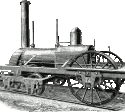|
I'm reinstalling my Solaris server as Ubuntu, and I've got a question about drive mirroring. I've got 2 system drives, and when I'd reinstall with Solaris, I'd pop one out, install on the other, copy anything I needed from the old one, then recreate the mirror. So I'd like to do that again with this system, so how would I go about mirroring my root parition after I've installed the system. I see guides for doing it with the Ubuntu installer, but obviously that's too soon for what I'd like to do.
|
|
|
|

|
| # ? Jun 4, 2024 19:05 |
|
ExcessBLarg! posted:The login shell is specified, per-user, in /etc/passwd. It's fine for /bin/bash to be the default shell for interactive users, but there's two problems: Is DASH an actual shell, or just a script parser? Can you link some documentation? (I fear googling it because ponies will infest my computer)
|
|
|
|
RFC2324 posted:Is DASH an actual shell, or just a script parser? Can you link some documentation? (I fear googling it because ponies will infest my computer) It's almquist. It's a real shell. Just a pretty limited one. Use pdksh. FISHMANPET posted:I'm reinstalling my Solaris server as Ubuntu, and I've got a question about drive mirroring. mdraid can trivially do this. But you want to do it in the installer because you'll want the right type in the partition table (Linux raid autodetect)
|
|
|
|
evol262 posted:It's almquist. It's a real shell. Just a pretty limited one. Use pdksh. I really prefer bash to ksh, and am used to scripting in it for quick and dirty poo poo(I never do anything not quick and dirty). Would zsh be subject to the same issues as bash?
|
|
|
|
RFC2324 posted:I really prefer bash to ksh, and am used to scripting in it for quick and dirty poo poo(I never do anything not quick and dirty). Would zsh be subject to the same issues as bash? No in the sense that it's not vulnerable to shell shock. Yes in the sense that the code is probably a mess and it's slow to start up and the syntax isn't the same (if you don't like the differences in advance scripting between ksh and bash, zsh has the same issues). Ksh for shell. Real language for scripts. No zsh
|
|
|
|
Personally I'm fine with continuing to use bash for now. It's fine as an interactive shell, and I occasionally use it for scripting, although nothing that would run remotely. I can understand abandoning it if it's track record (not great) is considered a liability, but I don't think it's a necessary step yet. As for alternatives, it's worth looking mksh (MirBSD Korn Shell), which is an actively maintained successor to pdksh. Debian now ships mksh in place of pdksh, and Google has vetted it and determined it to be of sufficient soundness for inclusion in Android. zsh has always been the "cool" shell, but I don't think it was ever that widely adopted. I wouldn't hesitate to use it if it's feature set is to your liking, but I'd assume that from a security perspective mksh has been better vetted.
|
|
|
|
ExcessBLarg! posted:Personally I'm fine with continuing to use bash for now. It's fine as an interactive shell, and I occasionally use it for scripting, although nothing that would run remotely. I can understand abandoning it if it's track record (not great) is considered a liability, but I don't think it's a necessary step yet. zsh security is probably fine. I just avoid it because it's not the stock shell anywhere and not installed (because there are no ex Solaris admins who love ksh), and I don't wanna install poo poo when I log into a new server I may never log into again
|
|
|
|
One of the drives in my raid-6 has been clicking for months and I really want to replace but I can't seem to figure out which one it is. Does anyone have a suggestion on how to track it down? It seems to be killing the IO on the array when it begins clicking (very loudly) but munin doesn't really show any huge differences between the disks regarding latency. I have a nice new WD red disk to swap in place but I don't want to do trial by fire as that could cause a failure.
|
|
|
|
Ashex posted:One of the drives in my raid-6 has been clicking for months and I really want to replace but I can't seem to figure out which one it is. Does anyone have a suggestion on how to track it down? Shouldn't SMART be able to tell you? It would show as performing worse than the other disks. Whichever it shows is the culprit, it should also be able to tell you the serial number, which is written on the disk itself, no?
|
|
|
Ashex posted:One of the drives in my raid-6 has been clicking for months and I really want to replace but I can't seem to figure out which one it is. Does anyone have a suggestion on how to track it down? 
|
|
|
|
|
Megaman posted:Shouldn't SMART be able to tell you? It would show as performing worse than the other disks. Whichever it shows is the culprit, it should also be able to tell you the serial number, which is written on the disk itself, no? this
|
|
|
|
Unfortunately SMART isn't really telling me very much, I have it configured to perform regular short/long tests with notifications and the most I ever get are alerts about temp changes. The disks are packed so close together (node 304) that listening doesn't help much, I originally thought it was the system disk and replaced it with a cheap SSD but the clicking continued. As for the test results I'm a little skeptical of them, they're all passing and some checks are in pre-fail such as Raw_Read_Error_Rate and Spin_Up_Time but that's across all disks and I replaced 2 at the beginning of this year (one is a SSD).
|
|
|
|
There's not one that jumps out? Hmm.
|
|
|
|
Ashex posted:Unfortunately SMART isn't really telling me very much, I have it configured to perform regular short/long tests with notifications and the most I ever get are alerts about temp changes. The disks are packed so close together (node 304) that listening doesn't help much, I originally thought it was the system disk and replaced it with a cheap SSD but the clicking continued. Also, I know this sounds hacky, but usually you can also tell by feel. Are your disks crammed together and so loud such that you can't hear or feel the one that is clicking? Usually clicking produces vibrations that you should be able to clearly identify over other quiet or quiter disks. Does the clicking only happen on writes? If it happens all the time you should be able to pull the disks out of the set and attach it to another machine, without touching them with software of course, one by one and figure out which one it is.
|
|
|
|
My mother-in-law needed a computer for internet browsing and storing pictures of grandchildren, so I assembled one for her and put Mint 17 on it, because gently caress paying for an OS for that. My overall command of Linux is probably about a 2 out of 10, but I have run a few different flavors on my laptop over the last few years, and will be changing it to Mint 17 as well to help build familiarity with the OS for when she has questions. My goal is that being her tech support will give me the kick in the rear end I need to start to really put more effort into learning Linux. The one hiccup with her computer requirements is that she is also an avid sewer, and the machine that she has accepts a proprietary USB storage card that uses its own software to interface with the PC. The software is Brother PED-Basic (version 1.07, if you're curious). WINE handles the software no problem because it is basically babbys first file-transfer program; however, the instructions for installing the USB dongle is to plug it in on your Windows system and wait for it to recognize the device, then point it towards the driver on the CD. The problem is that WINE doesn't care to acknowledge the newly plugged in USB device and installing the proper driver. My skill set may be limited, but it doesn't seem like it should be too big of a stretch to have WINE recognize that a USB device is connected and needs a driver associated with it (it is a glorified thumbdrive). Am I assuming that this is much more simple than really will be, or is it achievable with a little bit of goon assistance?
|
|
|
|
DrKennethNoisewater posted:My mother-in-law needed a computer for internet browsing and storing pictures of grandchildren, so I assembled one for her and put Mint 17 on it, because gently caress paying for an OS for that. My overall command of Linux is probably about a 2 out of 10, but I have run a few different flavors on my laptop over the last few years, and will be changing it to Mint 17 as well to help build familiarity with the OS for when she has questions. My goal is that being her tech support will give me the kick in the rear end I need to start to really put more effort into learning Linux. I doubt that driver would install. The driver is the weird part and WINE emulates the Windows APIs, not the driver or hardware systems of Windows. There's NDISWrapper for people with network cards but that's a very narrow focus on the Windows network driver stuff. You might need a Windows VM for this job.
|
|
|
|
Megaman posted:Also, I know this sounds hacky, but usually you can also tell by feel. Are your disks crammed together and so loud such that you can't hear or feel the one that is clicking? Usually clicking produces vibrations that you should be able to clearly identify over other quiet or quiter disks. Does the clicking only happen on writes? If it happens all the time you should be able to pull the disks out of the set and attach it to another machine, without touching them with software of course, one by one and figure out which one it is. I'll trying doing it by feel, it's a little cramped in there (older picture, hanging drive is now an SSD and a better fan installed. Not much I can do about cables unless I clip them/go modular). The clicking comes and goes, Sometimes it will be happening every day every hour or so for 5 minutes and other times I won't hear it for weeks. There's a lot of read/write operations happening on the array from crashplan/torrent/usenet/plex/whatever.
|
|
|
|
crazysim posted:I doubt that driver would install. The driver is the weird part and WINE emulates the Windows APIs, not the driver or hardware systems of Windows. There's NDISWrapper for people with network cards but that's a very narrow focus on the Windows network driver stuff. I will try putting VirtualBox on there and hooking up the storage USB tonight. Thanks!
|
|
|
|
I recently got a notebook, and was thinking about putting Arch on it. I've not used Linux in about 5 years now, and was wondering what Desktop Environments are like nowadays. I remember it was mostly KDE and GNOME2, with Enlightenment as a somewhat more finicky option, and then you could run stuff like Openbox standalone. Is that how it is, nowadays? I remember GNOME and KDE were rather resource intensive, comparatively, at the time.
|
|
|
|
everythingWasBees posted:I recently got a notebook, and was thinking about putting Arch on it. I've not used Linux in about 5 years now, and was wondering what Desktop Environments are like nowadays. I remember it was mostly KDE and GNOME2, with Enlightenment as a somewhat more finicky option, and then you could run stuff like Openbox standalone. Is that how it is, nowadays? I remember GNOME and KDE were rather resource intensive, comparatively, at the time. Cinnamon and MATE are excellent, there is a frustrating bug with the start menu that I couldn't handle for Cinnamon. I tried out KDE and I didn't care for it at all, it looks amazing, the various parts all work but they just don't seem to mesh together well for me. GNOME is totally about user preference, some love it some outright hate it. https://wiki.archlinux.org/index.php/Desktop_Environment There are a lot more, like Manyard which was made for the Raspberry Pi and run Weston/Wayland that I'm unfamiliar with. Check the Arch Wiki, they're fanatics about documentation.
|
|
|
|
everythingWasBees posted:I recently got a notebook, and was thinking about putting Arch on it. I've not used Linux in about 5 years now, and was wondering what Desktop Environments are like nowadays. I remember it was mostly KDE and GNOME2, with Enlightenment as a somewhat more finicky option, and then you could run stuff like Openbox standalone. Is that how it is, nowadays? I remember GNOME and KDE were rather resource intensive, comparatively, at the time. The big desktops are pretty much KDE and Gnome, followed by XFCE and LXDE, then to smaller ones from there. KDE seems to perform surprisingly well nowadays, at least in my anecdotal experience. I haven't run Gnome since the 2.0 days, but XFCE and LXDE have both been decent in my use of them, which involved more XFCE than LXDE.
|
|
|
|
CaptainSarcastic posted:The big desktops are pretty much KDE and Gnome, followed by XFCE and LXDE, then to smaller ones from there. I actually tried out KDE recently and I am a complete convert after disliking it for years. The huge wins for me is that it seems to have options for basically everything (without faffing around with something like gconf) and that if you select a light-on-dark theme it actually works rather than just getting horribly hosed up and/or doing nothing at all like in GNOME. My biggest complaint so far is that the systray CPU/RAM/temperature monitors aren't nearly as good as the GNOME equivalent, but everything else works so much better I'm willing to put up with that.
|
|
|
|
ToxicFrog posted:I actually tried out KDE recently and I am a complete convert after disliking it for years. The huge wins for me is that it seems to have options for basically everything (without faffing around with something like gconf) and that if you select a light-on-dark theme it actually works rather than just getting horribly hosed up and/or doing nothing at all like in GNOME. My biggest complaint so far is that the systray CPU/RAM/temperature monitors aren't nearly as good as the GNOME equivalent, but everything else works so much better I'm willing to put up with that. When they jumped from KDE 3 to KDE 4 I jumped ship to Gnome 2.0, and gave them another look when I decided I didn't want Gnome 3.0. KDE 4 has matured nicely, and I spend 90% of my computing time in it now. The remaining time is mostly in Windows, and that's pretty much just for those games which don't have a Steam OS version.
|
|
|
|
KDE is, imo, the best of the DEs. It nicely combines pretty with functionality and configuration. Dark themes work nicely(personal computing tends to be done in a dark room, so dark themes keep me from being blinded) and things like the desktop cube make multiple desktops easy to handle while being pretty and impressive to people looking on(I have literally impressed co-workers with how pretty and easy to use it is, since most people stick to gnome). KDE is, and will remain till they gently caress up horribly, my favorite DE.
|
|
|
|
YouTuber posted:Cinnamon and MATE are excellent, there is a frustrating bug with the start menu that I couldn't handle for Cinnamon. Out of curiosity, what was the bug? The only problem I've encountered is that it occasionally takes half a second or so to load the menu if you haven't clicked on it in a long time. For everythingWasBees, you've probably guessed that Cinnamon is my current favorite, with Xfce as a close second, which I use on my very limited netbook. Mate is exactly Gnome 2 if that's what you want, LXDE is very light and surprisingly okay, and I could tolerate Unity, but Gnome 3 is unusably horrible. I'd offer an opinion on KDE but I haven't played with it in quite some time. And at work there's that one guy who loves Enlightenment and constantly evangelizes it, and I admit it has some cool features, but he seems to spend an inordinate amount of time getting basic poo poo to work.
|
|
|
|
I need a recommendation. I've been using i3wm together with xfce4-power-manager for ages without any problems. However, after a bigger update, it seems xfce4-power-manager now only outputs its icon to a xfce4-panel, not arbitrary system trays. Any other recommendations for a power-management utility that has a graphical indicator of battery status and remaining percentage? Also:
|
|
|
|
Baron Bifford posted:If I compile a .cpp file that's on my external drive, then copy the file to my Home folder on my internal drive, I still get the "permission denied" message. It is only when I compile the file when it is on my internal drive that it works properly. Is your external drive using a VFAT/FAT32 filesystem? VFAT and FAT32 filesystems don't have any place to store the Unix-style permission bits, so instead they fake the permissions by assigning one default set of permissions to all files, and another to all directories. Normally the default set does not include any "executable" bits for files. When your compiler writes the new executable file to the external drive, the compiler tries to set the file as executable. But the FAT-type filesystem cannot store the permission bits and just  ignores that part. For the same reason, a "chmod 755 a.out" on a FAT-type filesystem just won't stick. ignores that part. For the same reason, a "chmod 755 a.out" on a FAT-type filesystem just won't stick.As a result, the a.out file on the external drive won't have the 'x' bits... and when you copy the file to the internal drive, the file will be copied as-is... that is, with the 'x' bits missing. The "noexec" mount option does not prevent the existence of the 'x' bits... it just makes them not work on any files within that filesystem.
|
|
|
|
telcoM posted:VFAT Just curious, what happens with NTFS?
|
|
|
|
both VFAT and NTFS drivers allow you to specify the default permissions when mounting
|
|
|
|
Fun fact: noexec or FAT filesystem doesn't stop you from running compiled ELF binaries. You can run any ELF binary with the Linux dynamic linker. Something like: /lib/ld-linux.so PROGNAME ARGUMENTS
|
|
|
|
Powered Descent posted:Out of curiosity, what was the bug? The only problem I've encountered is that it occasionally takes half a second or so to load the menu if you haven't clicked on it in a long time. If you click the menu and move your mouse quickly over the start menu it still registers the mouse button as depressed and will open whatever random program that is below the cursor. Suspicious Dish diagnosed it as a MouseUp event and I went looking for a bug report, turns out that the Cinnamon devs view it as a trivial non-bug/feature so it wasn't going to get patched.
|
|
|
|
waffle iron posted:Fun fact: noexec or FAT filesystem doesn't stop you from running compiled ELF binaries. You can run any ELF binary with the Linux dynamic linker. Something like: /lib/ld-linux.so PROGNAME ARGUMENTS
|
|
|
|
|
|
|
|
Love Stole the Day posted:
quote:
|
|
|
|
spankmeister posted:All of the above, except hackable. They're not more or less hackable than their windows equivalents. Plus they might be put off by the "fragmentation" issue.
|
|
|
|
I suppose if Steam Machine becomes big we shall see widespread Linux support in the future.
|
|
|
|
Does anyone know how to do a replacement in sed only if the string you want to replace is the first character of a line? Basically got a bit of a broken csv which is meant to have two columns, but a lot of lines have nothing in the first column, so a line will look like: code:code:
|
|
|
|
Experto Crede posted:Does anyone know how to do a replacement in sed only if the string you want to replace is the first character of a line? If I'm reading your post right, this should do it: code:code:kujeger fucked around with this message at 14:43 on Oct 9, 2014 |
|
|
|
After the recent desktop environment discussion, I thought I'd try out KDE on the Ubuntu VM I have. I followed the guide here, but when I log on, I don't have an option for KDE. Everything in the installation seemed to go fine. What am I missing?
|
|
|
|

|
| # ? Jun 4, 2024 19:05 |
|
hooah posted:After the recent desktop environment discussion, I thought I'd try out KDE on the Ubuntu VM I have. I followed the guide here, but when I log on, I don't have an option for KDE. Everything in the installation seemed to go fine. What am I missing? why not just install another VM and use kubuntu?
|
|
|

































